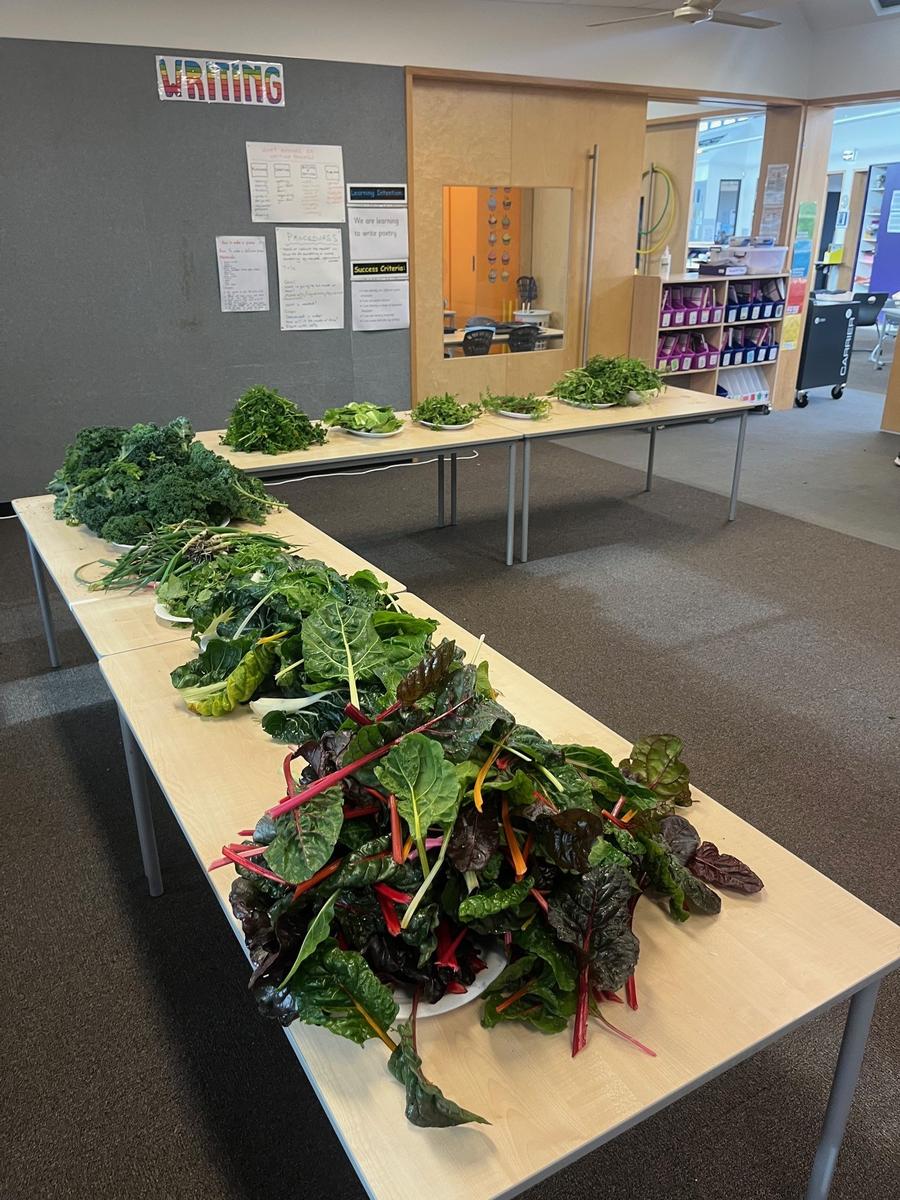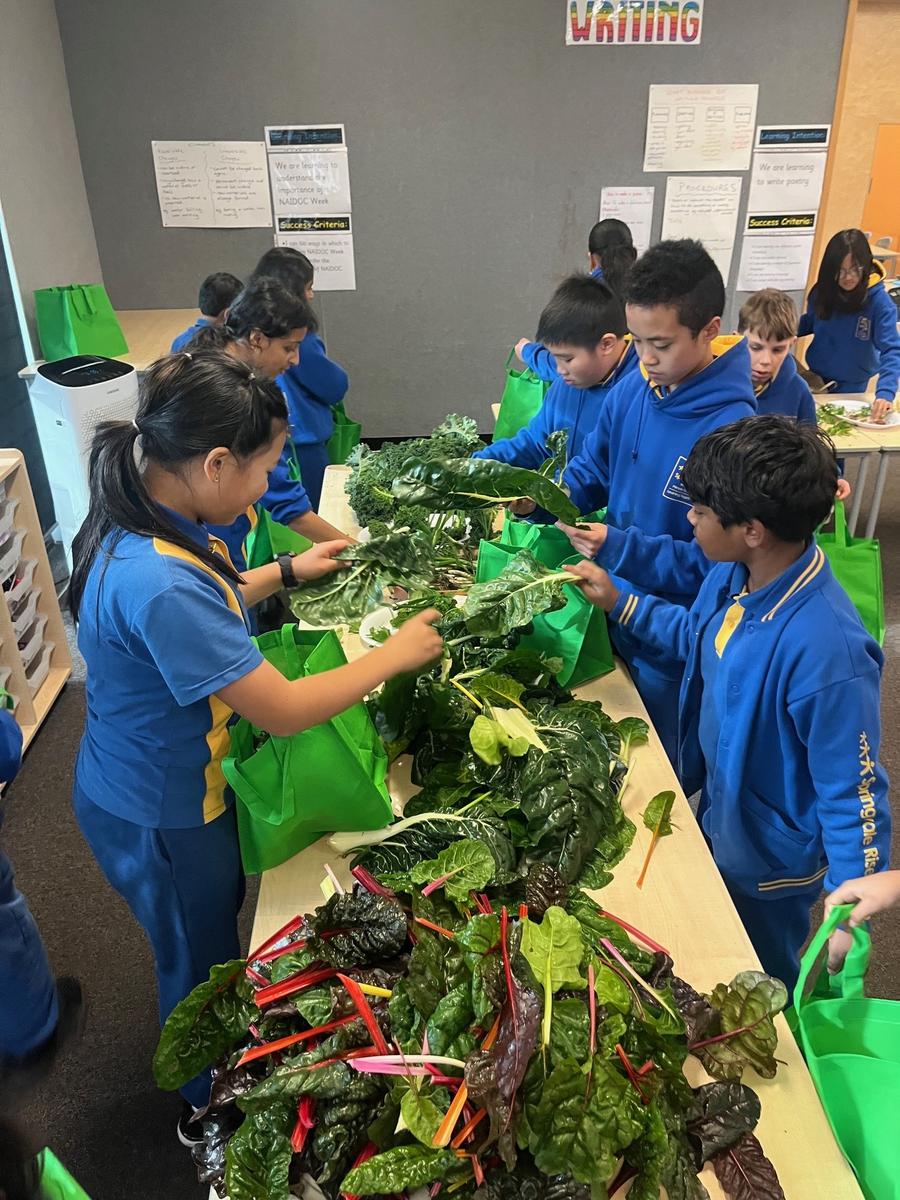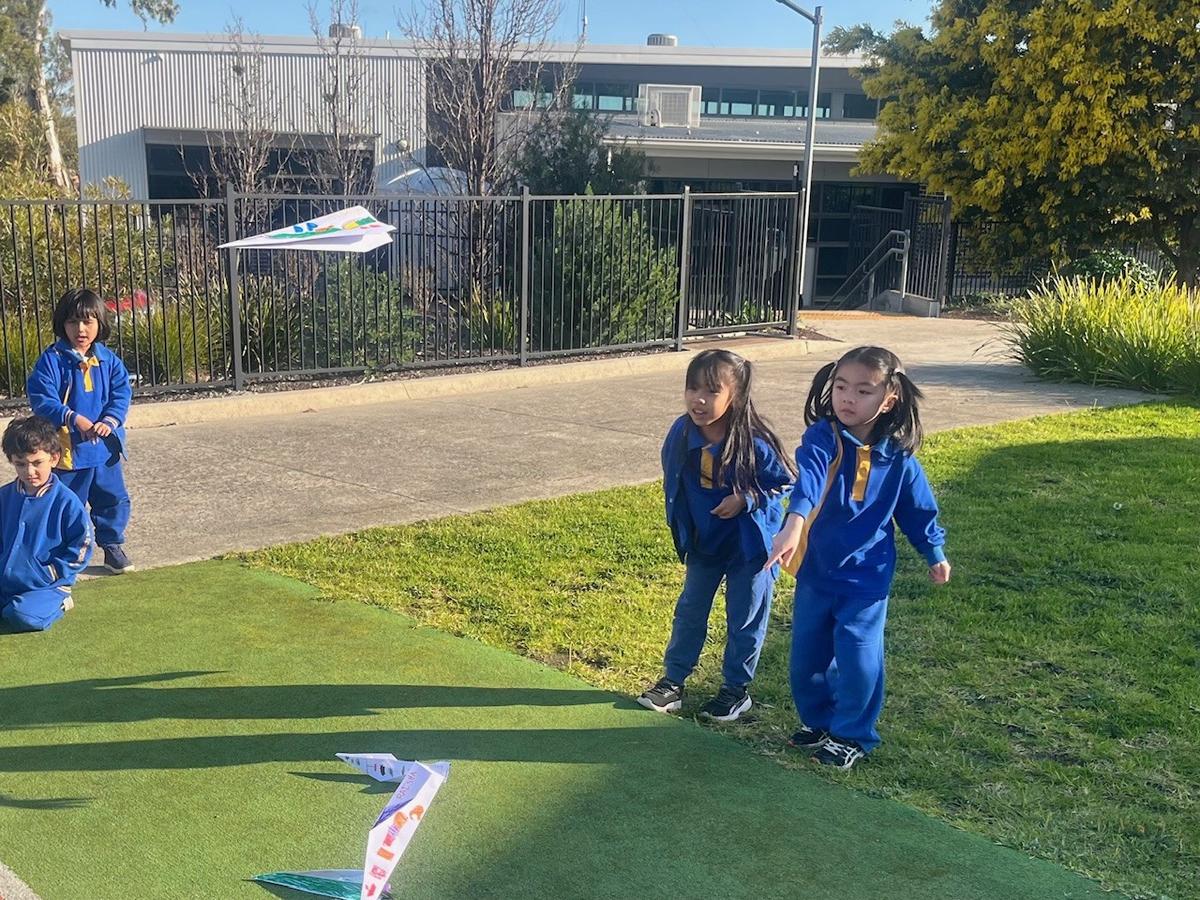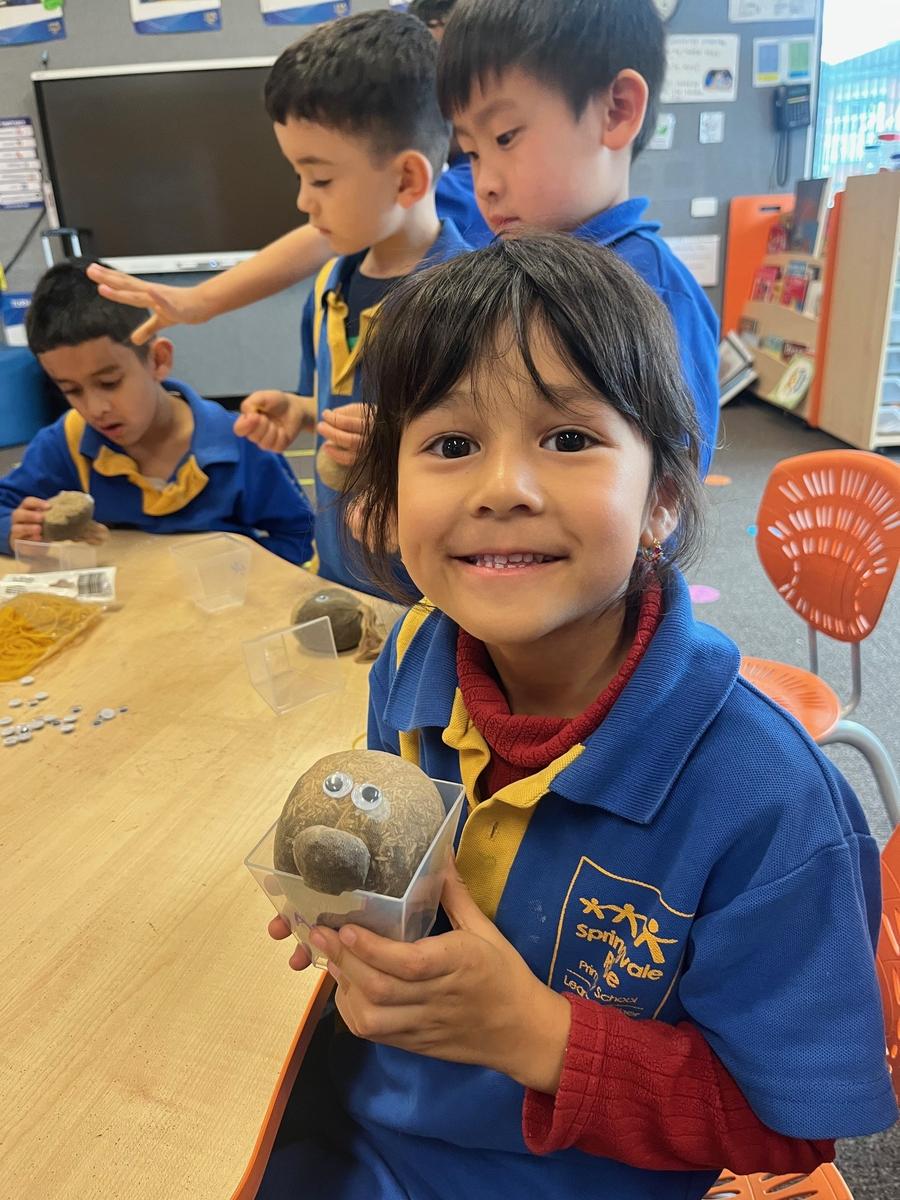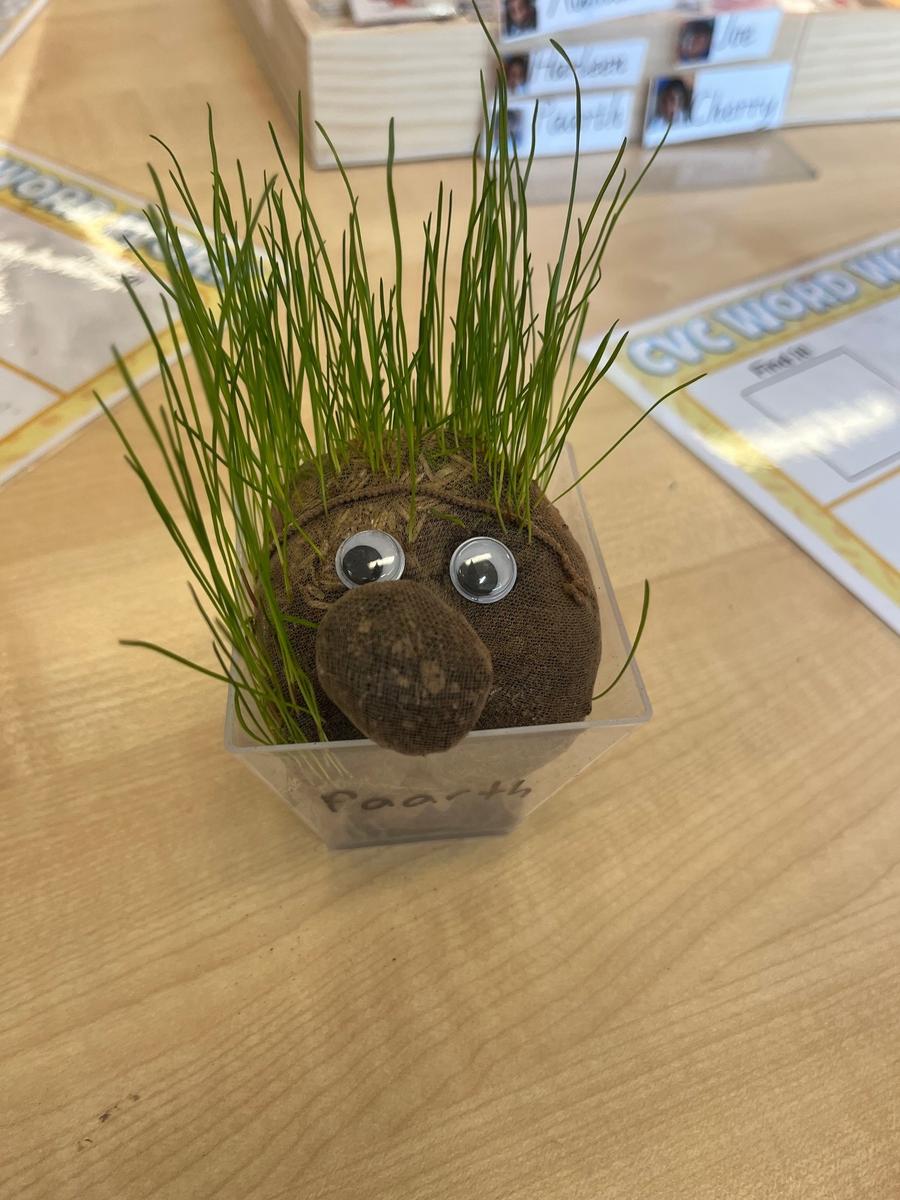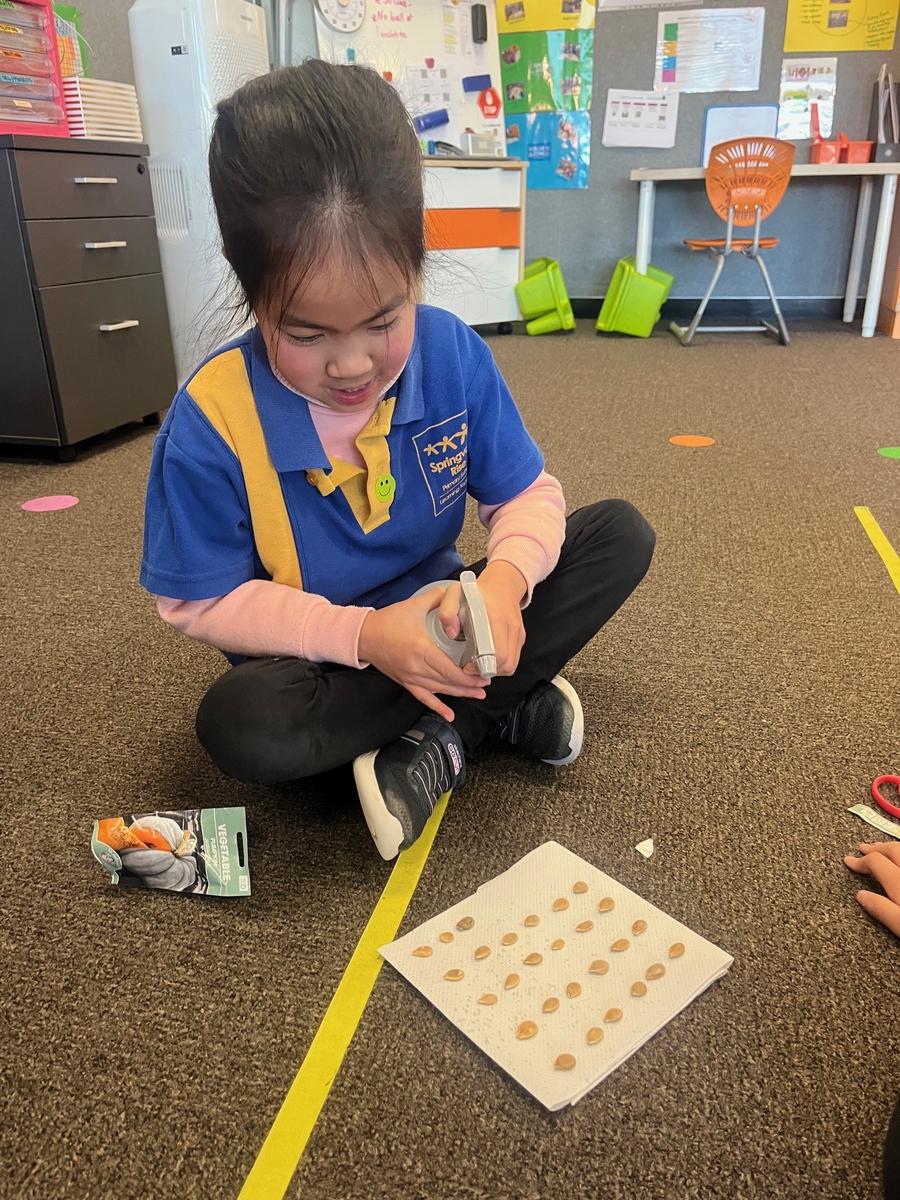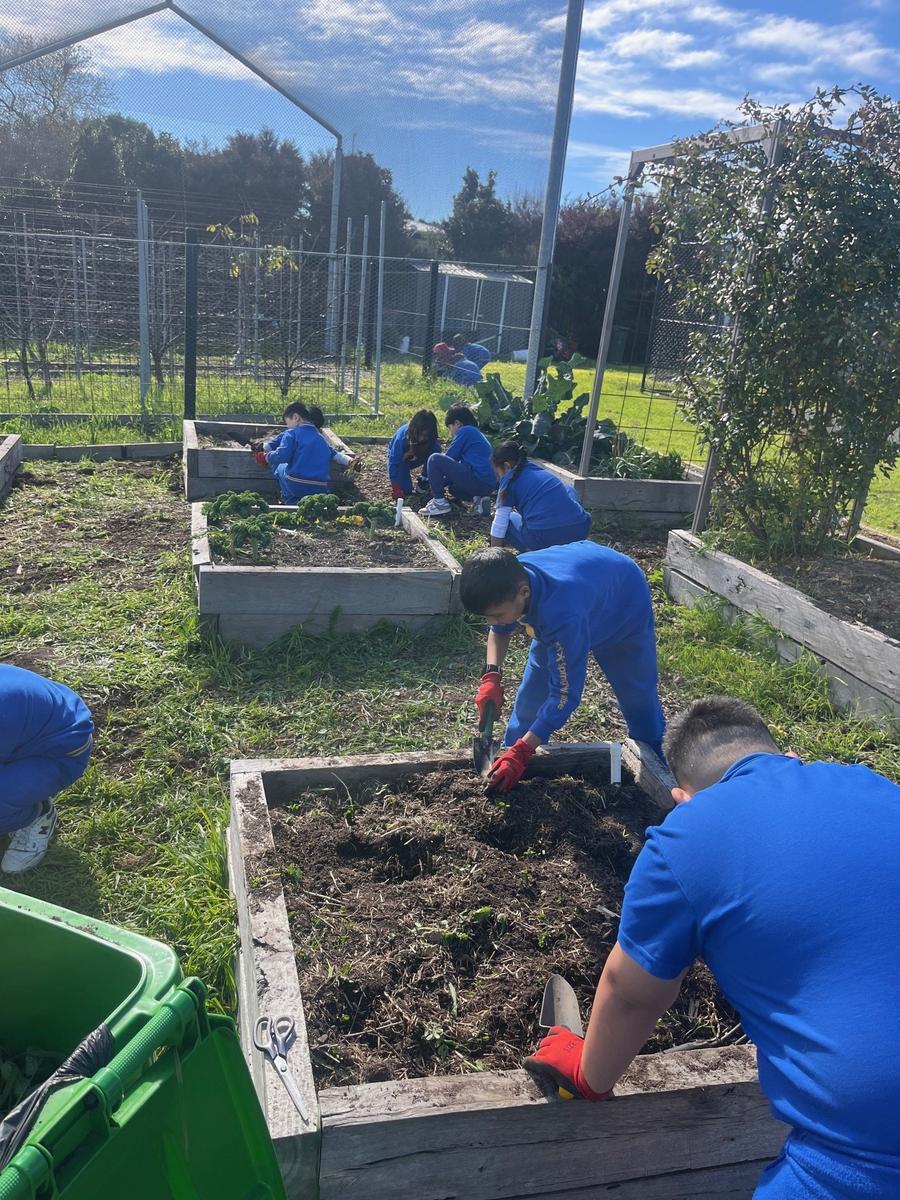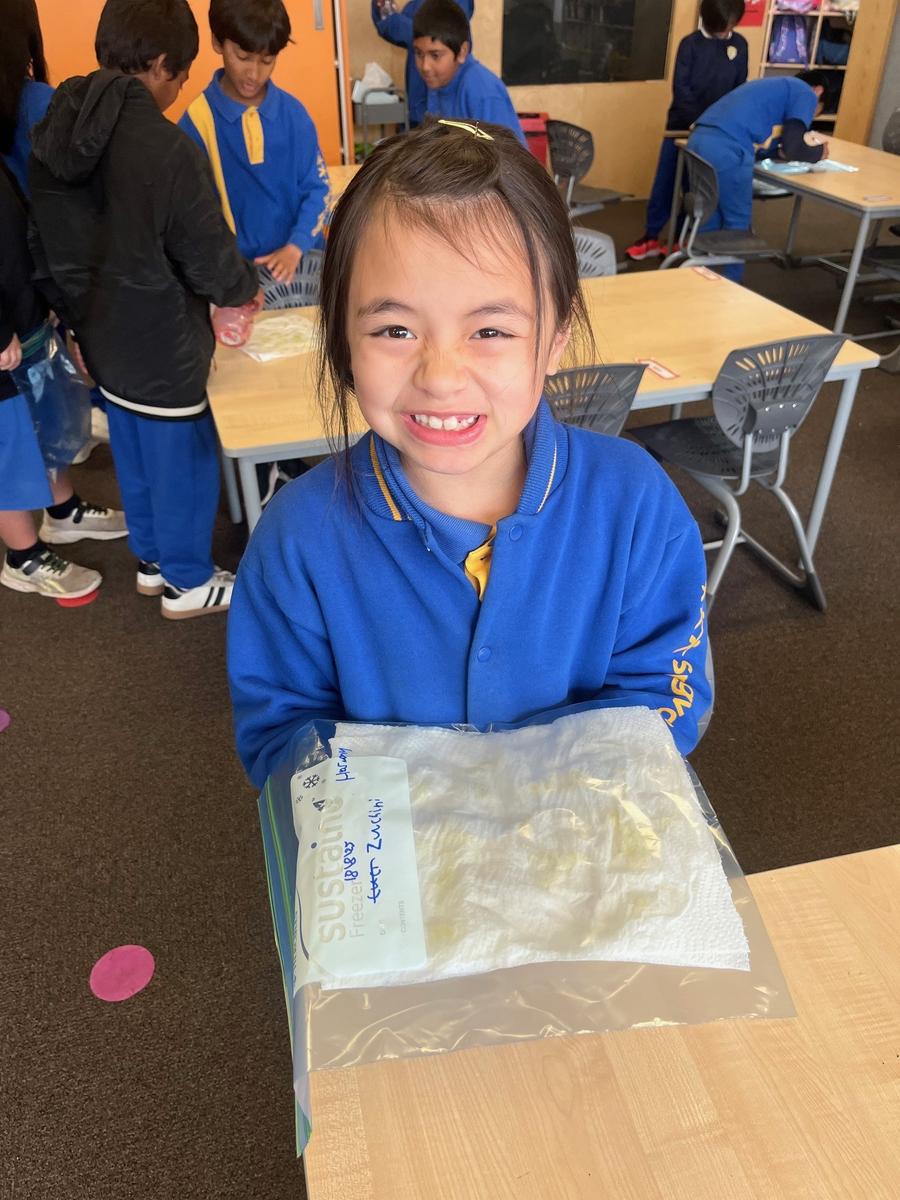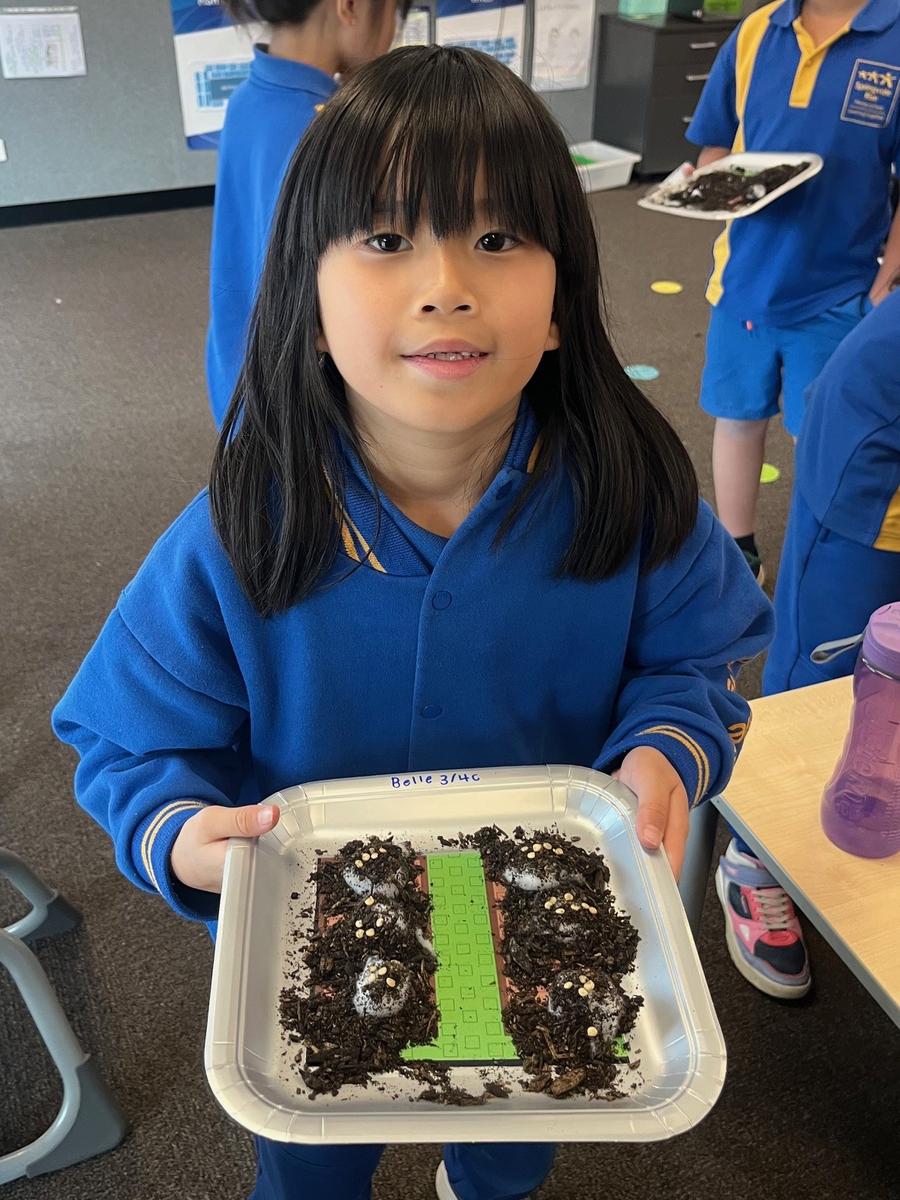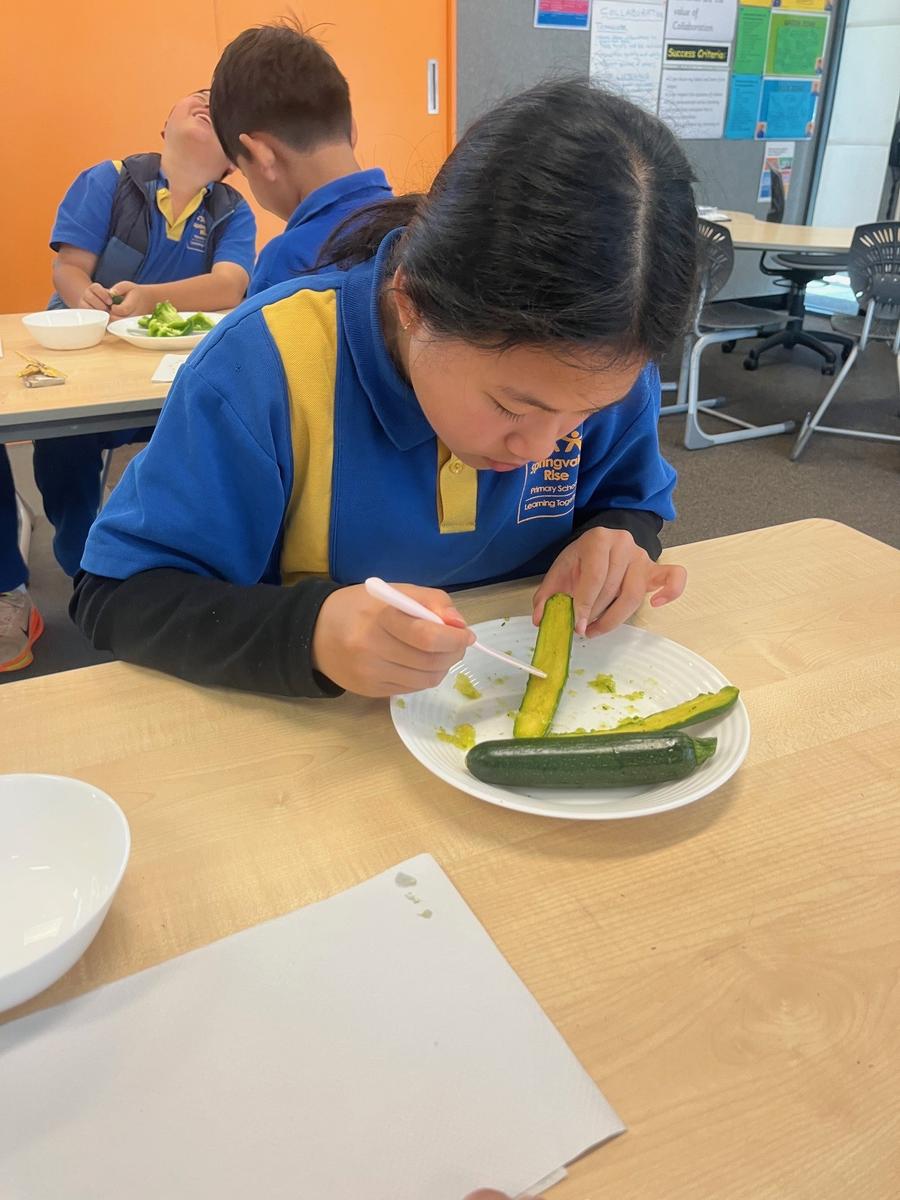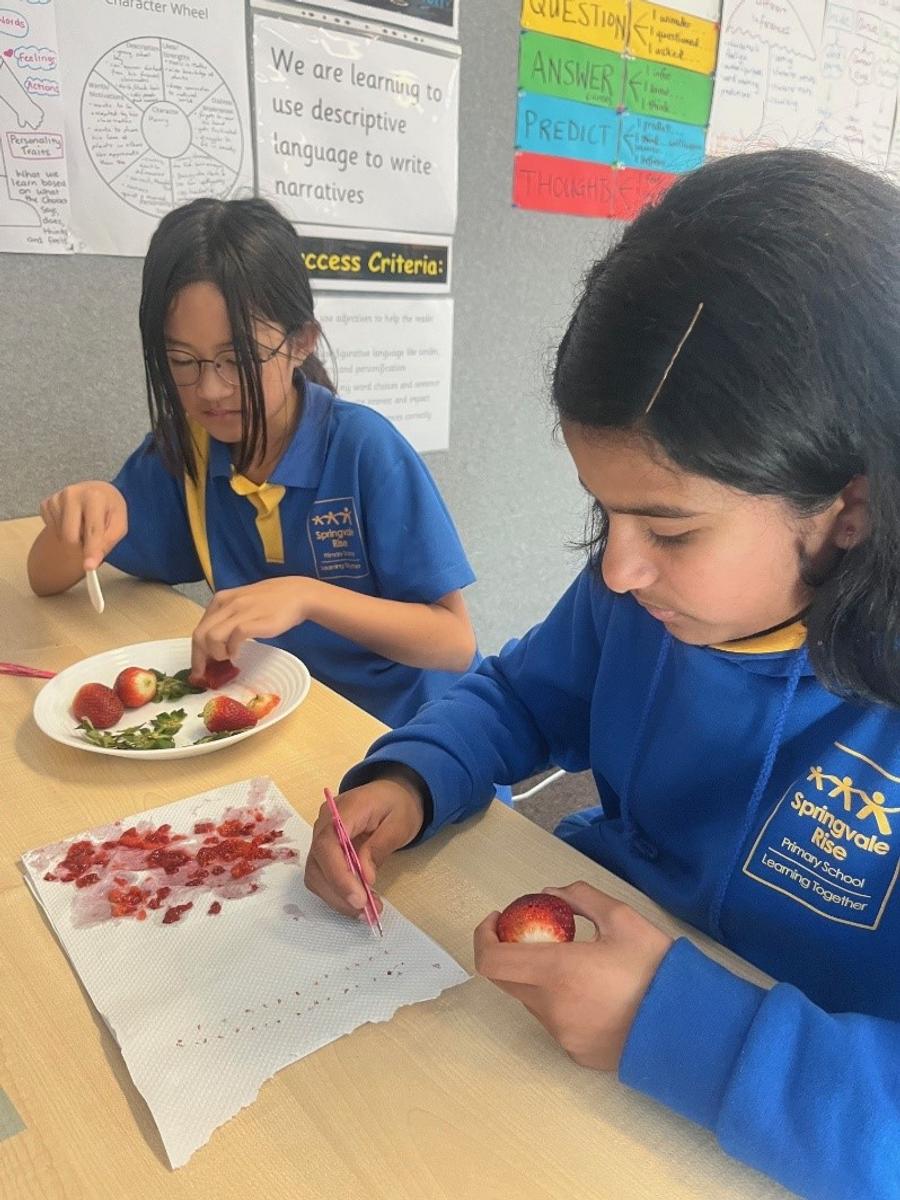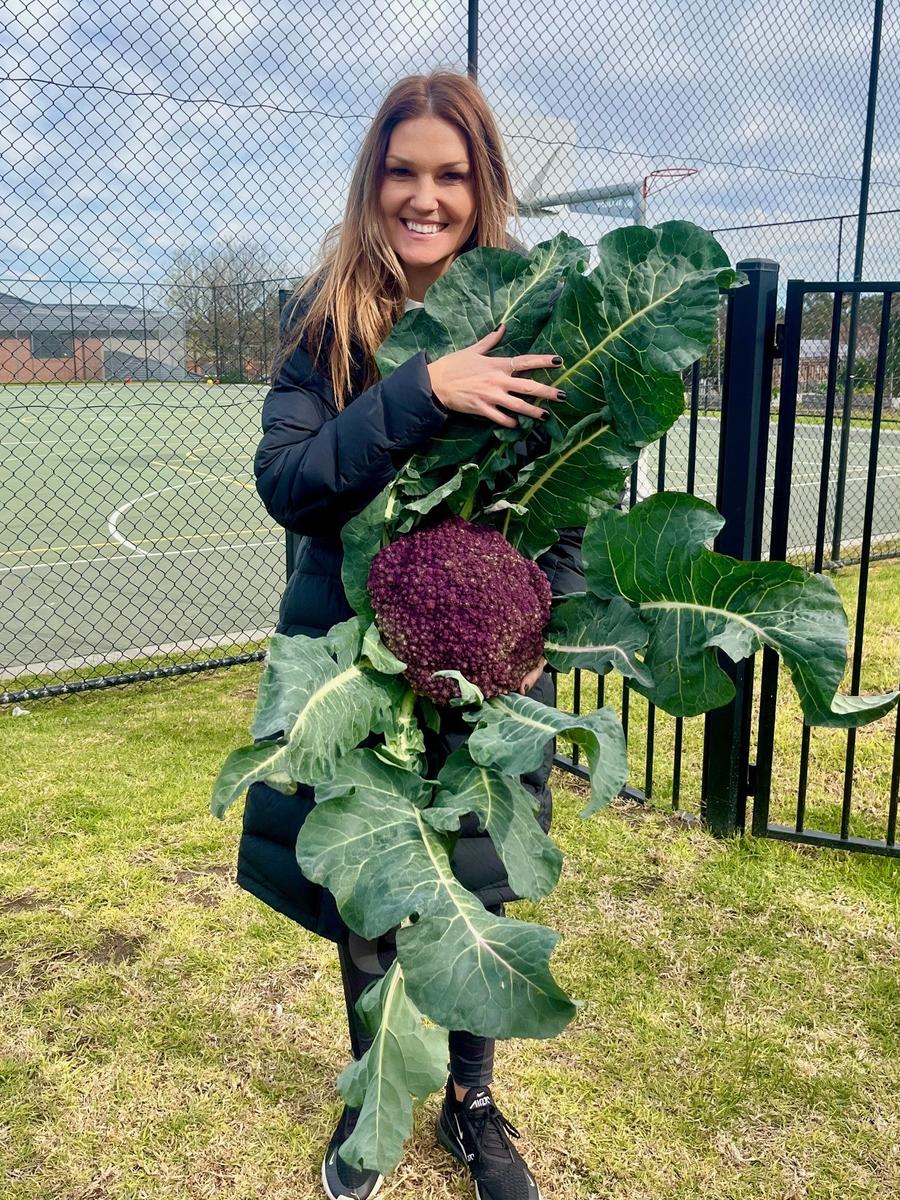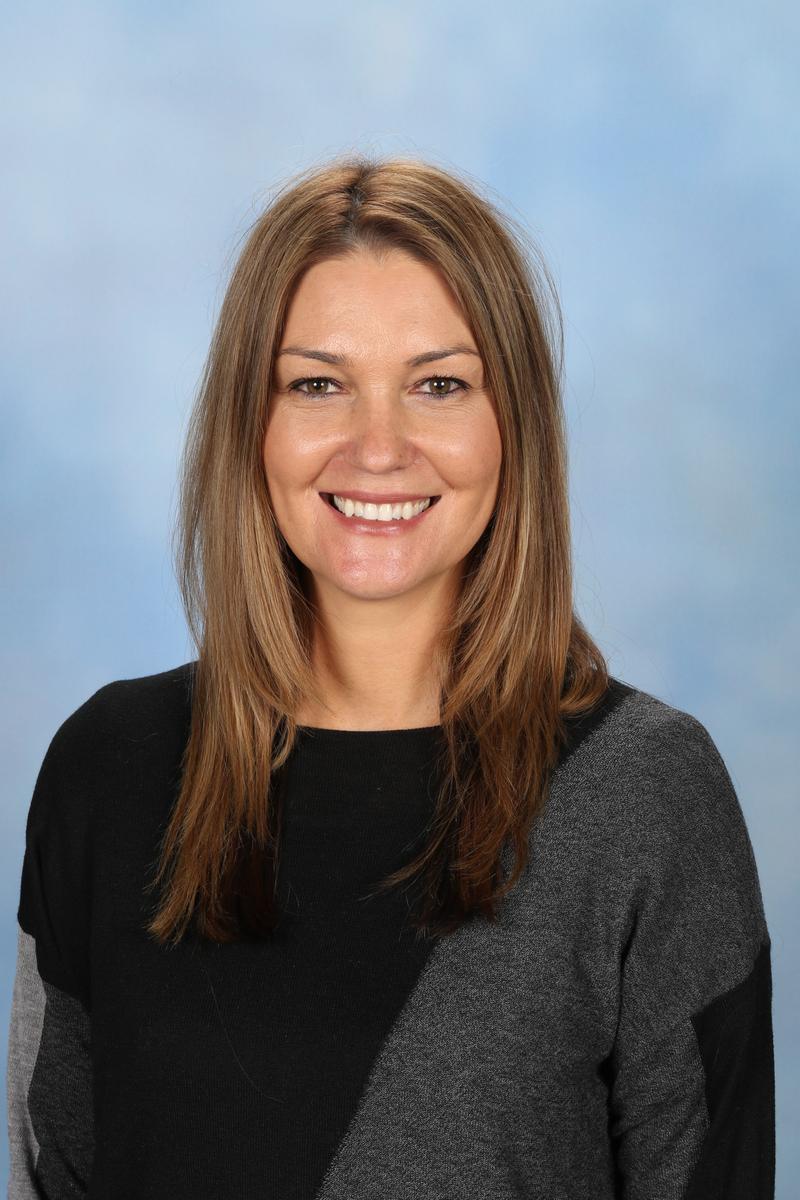Environmental Science

A Fresh and Exciting Term 3!
Term 3 began wonderfully on our campus with a wealth of hands‑on learning in both the garden and the classrooms. Students were thrilled to harvest an abundance of herbs and vegetables such as spinach, kale, lettuce, mint, and even “go shopping”—selecting fresh produce to take home and cook with their families.
In the FLC, students explored the many types of weather we experience and discovered how wind can move different objects through a paper aeroplane competition. They also learned all about bees, the lifecycle of a butterfly and what plants need to grow, and made their very own grass heads using lawn seeds.
In the JLC, students delved into the effects of natural disasters such as floods, droughts, cyclones, and bushfires and how they can stay safe during one of them. They prepared seeds for germination, learned about the essential conditions—water, warmth/light, and air—that support germination, and planted their sprouted seeds in mini‑gardens to take home and care for. Students also researched an animal that is endangered due to deforestation.
The MLC students spent time in the garden harvesting produce and weeding the garden beds. They also explored the topic of deforestation, examining its impact on the environment, the loss of animal habitats, and how it contributes to species becoming endangered. Students also carefully germinated seeds from fruits and vegetables and prepared them ready to sow as part of their own “Grow a Garden” projects.
Meanwhile, students in the SLC harvested herbs and vegetables, and began preparing the garden beds for Spring. Responding to student interest, they designed their own “Grow a Garden”‑style mini‑gardens inspired by Roblox, using germinated seeds of cucumbers, tomatoes, strawberries, chillies, zucchinis, and capsicums. The students thoroughly enjoyed concluding the term by working collaboratively in their homegroups to solve puzzles in a science-themed escape room hosted in their classroom. Students also explored natural disasters, investigating their effects on both the environment and people. Each student researched a specific flood of their choice and presented their findings to the grade.
It has been a fantastic, action‑packed term—students have learned so much about sustainability, caring for our environment, and the joy of growing their own food. Our lunchtime ‘Worm Farming and Compost’ Club has been a big hit, with many students eagerly collecting the compost bins from around the school, feeding our well-fed worms, and cleaning the bins ready for another week of classroom composting.
Jane McMahon
Environmental Science Program (Heights Campus)
